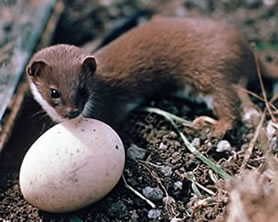|
“Quibbling over translations is perhaps only amusing for translators and people who claim to be experts in the original tongue. We’ll try a set of comparisons, but first I’ll declare that the best new old fiction you’re going to read all year is between the covers of this book.”—reviewer Bob Blaisdell's endorses the new Pushkin translation by Pevear and Volokhonsky.
"Magic In The Moonlight" is a pleasant, scenic screwball comedy which takes several of Woody Allen's perennial concerns and folds them into a small, neat, prettily decorated parcel. And yet, unless you're in a forgiving frame of mind, it's hard not to be niggled by its faultshttp://econ.st/1uNYxMX
Weasel words
Meaning Ambiguous or quibbling speech.((略式))逃げ口上, 遠回しな言葉.
'Squeezed middle' Oxford English Dictionary's Word of the Year
Chicago Tribune
The Oxford English Dictionary has announced its 2011 Word of the Year — "squeezed middle," which is actually two words, but who are we to quibble? Though British Labour Party leader Ed Miliband is credited with introducing the term describing the ...
Our Father, Who Art in Flagrante: Passion Pics Bestir Celibacy Debate
(By Michelle Boorstein, The Washington Post)
Insights into the surprising science behind traditional food preparation methods such as grilling, smoking, and stir-frying
When Sites Drag the Unwitting Across the Web
By SOMINI SENGUPTA
The social media site Klout has caused a stir with its culling of information about individuals, including children, from publicly available sources online.
weasel
(wē'zəl) 
n.
- Any of various carnivorous mammals of the genus Mustela, having a long slender body, a long tail, short legs, and brownish fur that in many species turns white in winter.
- A person regarded as sneaky or treacherous.
To be evasive; equivocate.
phrasal verb:
weasel out Informal.
- To back out of a situation or commitment in a sneaky or cowardly manner.
[Middle English wesele, from Old English wesle.]
[名](複 〜s, ((集合的))〜)
1 《動物》イタチ
pop goes the weasel
ひょいとイタチが跳ねる.
ひょいとイタチが跳ねる.
2 ((略式))ずる賢く卑劣な人;((俗))密告者.
3 ((主に米))(雪上用)ウィーゼル車.
━━[動](自)((略式))(責任などを)回避する;約束を破る((out/of ...));逃げ口上を言う;あざむく
weasel out of one's responsibility
責任を回避する.
niggle
Line breaks: nig¦gle
責任を回避する.
NOUN
Back to topOrigin
early 17th century (in the sense 'do in an ineffectual way'): apparently of Scandinavian origin; compare with Norwegian nigla. Current senses date from the late 18th century.
quibble
(kwĭb'əl) 
intr.v., -bled, -bling, -bles.
- To evade the truth or importance of an issue by raising trivial distinctions and objections.
- To find fault or criticize for petty reasons; cavil.
- A petty distinction or an irrelevant objection.
- Archaic. A pun.
[Probably diminutive of obsolete quib, equivocation, perhaps from Latin quibus, dative and ablative pl. of quī, who, what (from its frequent use in legal documents).]
quibbler quib'bler n.
SYNONYMS quibble, carp, cavil, niggle, nitpick, pettifog. These verbs mean to raise petty or frivolous objections or complaints: quibbling about minor details; a critic who constantly carped; caviling about the price of coffee; an editor who niggled about commas; tried to stop nitpicking all the time; pettifogging about trivialities.
| bestir | (verb) To cause to become active. |
| Synonyms: | rouse |
| Usage: | If nobody knows the address, you must still bestir yourself in trying to find it. |
screwball
Line breaks: screw|ball
Pronunciation: /ˈskruːbɔːl/ chiefly North American
NOUN
ADJECTIVE
INFORMALBack to topDerivatives
沒有留言:
張貼留言